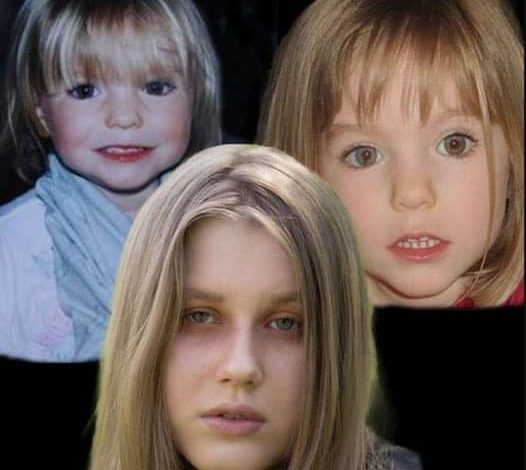DNA Test Confirmed The Final Twist In 21-Year-Old’s Claim That She’s Madeleine McCann

A DNA test has recently confirmed that Julia Wendell, the 21-year-old Polish woman who previously claimed to be the missing British child Madeleine McCann, is not McCann. Wendell, who gained significant attention on social media, sparked widespread interest by suggesting that she could be the missing child, citing physical similarities between herself and Madeleine. Her posts went viral, with many people discussing the possibility that Madeleine, who disappeared in 2007, might have been living under a different identity. Wendell’s claim was further fueled by her facial recognition tests, which seemed to suggest there were some similarities in their features. However, a more thorough investigation quickly put these speculations to rest.
The facial recognition test, which was conducted to analyze potential matches between Wendell and Madeleine, revealed no connection between the two. Despite these findings, Wendell continued to share her belief on social media that she could be Madeleine, even as experts and investigators raised doubts about her claim. The DNA test results provided the final proof, revealing that Julia Wendell is of Polish descent with Lithuanian and Romanian ancestry, distinct from Madeleine’s British and Portuguese heritage. This revelation firmly debunked her assertion that she was the missing child. Additionally, Wendell’s legal counsel confirmed that her biological mother is indeed her mother, further solidifying the results of the DNA test and disproving her claim.
Although the DNA results have definitively confirmed that Julia Wendell is not Madeleine McCann, Wendell has not fully abandoned her assertion. She continues to pursue her claim, despite the overwhelming evidence to the contrary. This persistence has sparked some controversy, as it raises questions about her motivations and whether she is seeking attention or genuinely believes in her connection to the McCann case. While Wendell’s claims have caused an outpouring of support and concern from some online followers, they have also led to confusion and frustration for those who have been closely following the case of Madeleine McCann’s disappearance.
The McCann family, who have been tirelessly searching for their daughter since she went missing in Portugal in 2007, has understandably been affected by Wendell’s claims. However, they remain hopeful and focused on the ongoing efforts to find Madeleine, believing that one day they will uncover the truth about her disappearance. The family has consistently maintained their unwavering belief that their daughter is still alive and that she will be found. Despite the challenges and distractions, they continue to support the investigations led by law enforcement authorities and the many organizations dedicated to bringing answers to this heart-wrenching case.
The situation has brought renewed attention to the long-standing mystery of Madeleine McCann’s disappearance, which remains one of the most widely followed missing persons cases in modern history. The McCann family’s continued hope and determination serve as a powerful reminder of the strength of a parent’s love and their relentless pursuit of justice and closure for their missing child. While Wendell’s claims have been definitively debunked through scientific and legal means, they have sparked broader discussions about the emotional toll of the McCann case on both the family and the public, as well as the role of social media in amplifying such claims.
As authorities continue to work on new leads and investigations, the McCann family is supported by a global community of individuals who share in their hope and commitment to finding Madeleine. While Wendell’s claims have now been put to rest, the case continues to capture the attention of the world, with many still holding onto the hope that Madeleine will one day be found and reunited with her family.




